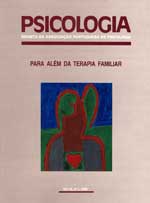Hiperprolactinémia como resultado de imaturidade ou de regressão
DOI:
https://doi.org/10.17575/rpsicol.v9i1.676Keywords:
-Abstract
Pathological hiperprolactinaemia (PH) is significantly associated with: 1) paternal deprivation during childhood; 2) depression; 3) non-specific symptoms including obesity and weight gain. The clinical onset of the symptoms often follows pregnancy or loss. Prolactin is an insulin antagonist which does not promote weight gain. Hyperprolactinaemia and increased metabolic efficiency are parts of a system of interdependent behavior-al and metabolic mechanisms necessary for the care of the young. We call this system, which is available as a whole package, maternal subroutine (MS). An important number of cases of PH are due to non-pregnancy induced activation of the MS. The same occurs in surrogate maternity and in some animal models. Most women with PH developed a malignant symbiotic relationship with their mothers, in the setting of absence, alcoholism or devaluation of the father. These women may regress to early developmental stages to the point that they identify themselves both with their lactating mother and with the nursing infant, as has been found in psychoanalysed patients and in the paradigmatic condition of pseudopregnancy. Such regression can be associated with activation of the MS. Prolactinomas represent the extreme of the spectrum of HP and may result from somatic mutations occurring in hyperstimulated lactotrophs.


